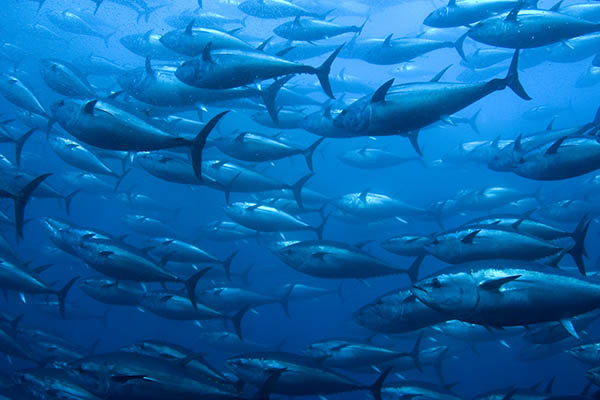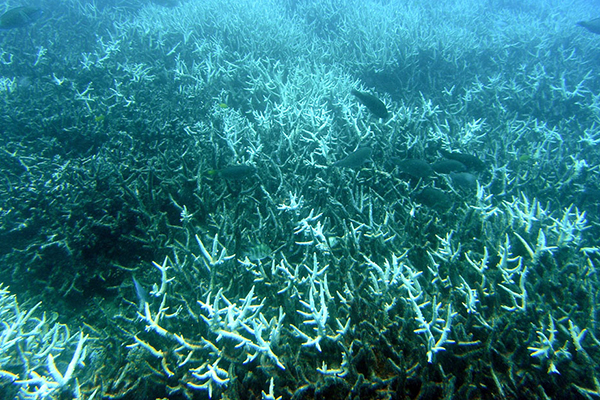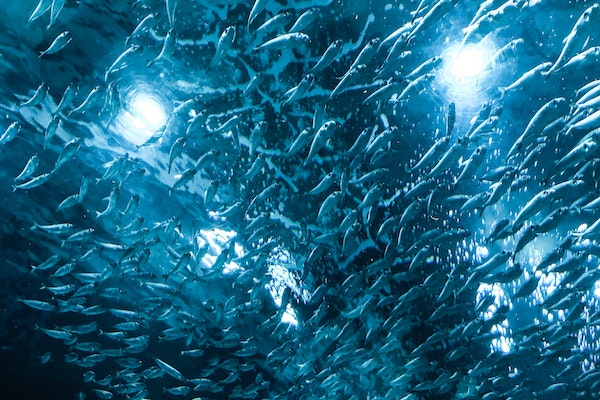‘Blowout record’ caused by both long-term global warming and short-term fluctuating water temperatures in the Pacific Ocean

Ocean surface temperatures were “off-the-chart” in 2023, causing more intense weather patterns, concludes a new study published in Advances in Atmospheric Sciences. A multi-national team of scientists (China, USA, New Zealand, Italy and France), who analyze the Earth’s temperature annually, noted a consistent rise each year, making the past decade hotter in the ocean compared to the previous years.
The ocean is an important part of the Earth’s climate system – it covers 70 percent of the planet and absorbs about 90 percent of the heat from global warming. According to the data, the research team estimates that the ocean warmed somewhere between 9 to 15 jettajoules – which is enough energy to boil away 2.3 billion Olympic-sized swimming pools. Discrepancies in their findings are attributed to data-handling methods.
“What this means is the warming might be greater than the numbers reported here,” said Dr. Lijing Cheng, lead author from the Institute of Atmospheric Physics (IAP) at the Chinese Academy of Sciences (CAS).
This “blowout record” is caused by both long-term global warming and short-term fluctuations of water temperatures in the Pacific Ocean (El Niño). Currently, both are contributing to the warmer waters at the ocean surface. A strong El Niño event in the tropical Pacific has built on global warming and climate change to warm ocean surface temperatures since May.
In turn, this modifies weather patterns worldwide. It’s the relatively small year-to-year natural variability in ocean heat content (OHC) relative to the warming trend that makes OHC an indicator of climate change.
The way rain falls and water evaporates is changing, affecting how salty the oceans are. Some areas with a lot of salt are getting even saltier and places with less salt are getting fresher. This has consequences for marine life and ocean currents.
When the top layer of the ocean has warm and less dense water, it tends to stay on the surface. This layer can’t carry heat and carbon dioxide down into deeper parts of the ocean. Scientists call this kind of water “stratified.” New data shows that this stratification is increasing, which means the ocean is becoming more layered. This is bad because it reduces the ocean’s oxygen and its ability to absorb carbon dioxide. This has serious consequences for plants and animals in the ocean.
With warming waters, will fish suffer from oxygen deprivation?
A warming ocean also supercharges weather. The extra heat and moisture that enter into the atmosphere produce more severe storms with heavier rain, stronger winds and more significant flooding. There is tremendous damage around the world (approximately $200 billion each year in the United States alone) as well as major disruptions and loss of life.
According to the researchers, these results highlight the need to promptly cease burning fossil fuels and stop adding more carbon dioxide into the atmosphere by decarbonizing the economy and switching to lower-cost, cleaner, renewable sources like wind, solar and hydropower.
Now that you've reached the end of the article ...
… please consider supporting GSA’s mission to advance responsible seafood practices through education, advocacy and third-party assurances. The Advocate aims to document the evolution of responsible seafood practices and share the expansive knowledge of our vast network of contributors.
By becoming a Global Seafood Alliance member, you’re ensuring that all of the pre-competitive work we do through member benefits, resources and events can continue. Individual membership costs just $50 a year.
Not a GSA member? Join us.
Author
-
Responsible Seafood Advocate
[103,114,111,46,100,111,111,102,97,101,115,108,97,98,111,108,103,64,114,111,116,105,100,101]
Tagged With
Related Posts

Responsibility
Study: More than 90% of global aquaculture faces substantial risk from effects of climate change
Aquatic food producers are vulnerable to the effects of climate change, with USA, China and Thailand at the most risk, a UCSB study finds.

Responsibility
Hottest ocean temperature record set in 2022 for seventh consecutive year
Research says a record-high ocean temperature combined with greater salinity could create inhospitable ocean conditions for marine life.

Responsibility
Study: 2021 breaks record for hottest ocean temperature
New research shows the ocean temperature in 2021 was the hottest ever recorded by humans, and the effects of ocean warming are "far-reaching."

Responsibility
Study: Global warming above 2 degrees-C will lead to ‘irreversible loss in marine ecosystem habitability’
CSIRO determines that global warming above 2 degrees-C will decrease viable ocean habitats and will affect fishing grounds and productivity.



